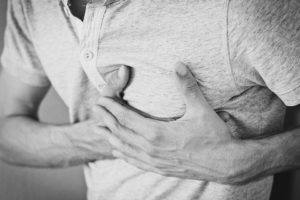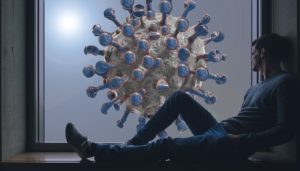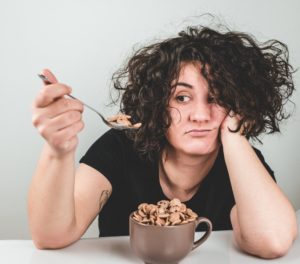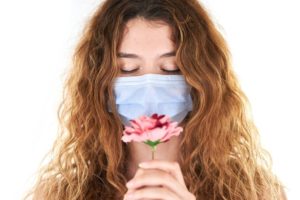
“I don’t feel the same…”
“This is not how I used to feel before I got sick.”
This is how many COVID-19 survivors describe how they feel after the infection.
Unfortunately, long covid symptoms have been poorly understood since the pandemic until it was officially recognised and known as Long-COVID Syndrome.
Are you one of those whose symptoms are persistent?
What are symptoms of covid-19 that you still have?
And are there long covid symptoms in kids?
Can nutrition, supplementation and laser sharp customised exercise rehabilitation help get rid of long COVID symptoms?
There is no doubt that these questions pop-up in your mind at some point…
Not only because you need rock solid scientific, evidence-based answers, but also because they are keeping you stressed about what is coming next.
Well, I will go through these questions, and get them answered all along for you.
How Common are Long Covid Symptoms?
Ending a home or a hospital quarantine in London sounds like the good news everyone has been waiting for after testing positive for COVID-19.
When you get this news, you might think it is finally time to get back to London’s life, your work, family and friends.
Surprisingly, COVID-19 might have made other plans for you!
And unfortunately, it could give you some long-lasting symptoms that limit your daily life activities.
And you are not alone in this!
- Did you know that a recent study has reported an estimation that more than 2 million people in the UK may have suffered from persistent long COVID symptoms?
These symptoms often occur in adults but there are also covid symptoms in kids.
And they can be anywhere from slight to severely limiting.
If you can relate to this, read on to find out what are symptoms of covid-19 that might be affecting you the most…
Symptoms Taking Too Long: Why is that?
- What happens to our bodies when we catch the coronavirus?
- Why some symptoms persist for this long?
Well, when the COVID-19 virus enters the body, it stimulates a cascade of inflammatory responses that start by secretion of inflammatory substances (e.g., cytokines).
This is how your immune system responds to infection.
So, is this a good thing?
Although this is an immune response to infection, this great increase in inflammatory substances can lead to a more intense systemic inflammatory response that affects several organs like:
- the heart,
- lungs,
- kidneys,
- liver and
- digestive system). [1]
In addition, the coronavirus affects the vessels leading to diffuse endotheliitis (inflammation of the vessel wall).
Inflammation of the vessels conveying blood to the body’s vital organs leads to hypoperfusion (low blood supply) and thus, poor function of these organs. [2]
- This is why people with COVID-19 can complain from widely ranging symptoms affecting different parts of their bodies.
- And because the resulting injury does not subside overnight, it can take as long as several weeks to months to fully recover.
When these symptoms last for more than 12 weeks, the condition is recently referred to as Long-COVID Syndrome.
Although these facts answer many questions about why COVID-19 symptoms are so variable and wide ranging, many questions are still lingering.
Here are more details about the most common long-lasting symptoms and why they happen…
1. Getting Breathless at Rest
- Do you feel that you have been running miles while you are actually sitting on your couch?
- Do you feel your chest is tight?
- Breathing is more difficult than before and it is not getting better over time?
Don’t worry at this point; it is common for COVID-19 survivors to report breathlessness while doing simple activities such as cooking, walking from a room to another and even at rest!
Research shows that this symptom might persist for weeks and even months after the onset of infection. [3]
It can also be accompanied by cough, runny nose or affected sense of smell. [3]
- The reason why this can be a very troubling symptoms is that it prevents you from getting as active as you used to be.

Chest Tightness Explained: Why Are You So Out of Breath?
COVID-19 is well-known for attacking the lungs and causing pneumonia (lung inflammation) and acute respiratory distress (ARDS).
- These two pathological problems manifest in form of respiratory symptoms such as cough, shortness of breath and chest tightness. [3]
However, it has been reported that even those – whose lungs were not affected – still experience shortness of breath long after the infection has resolved. [2],[3],[4]
The reason behind this is the acute inflammatory response we just mentioned.
Imagine that your cells are already being poorly oxygenated at the time they need more oxygen to fight and recover from infection.[2]
This mismatch in oxygen supply and demand challenges the lungs to convey more oxygen.
At the same time, due to the prolonged home or hospital stay and lack of activity, cardiopulmonary capacity is compromised [5] which puts more challenge on the respiratory system.
- The end result is this shortness of breath you feel even at rest.
Good news is, with the right respiratory rehabilitation and the proper exercises, you can restore your breathing, conquer the chest tightness and get more active with no breathlessness.
- Would you like to find out how these symptoms can affect your body rehab?
- Want to find the best way to conquer your breathlessness and get active in the shortest duration possible?
- Request a FREE CONSULTATION NOW!

2. Fatigue: Where Did My Energy Go?
Nothing is worse than feeling too tired to do even the easiest thing you used to do.
- Not being able to walk to work, or not being able work!
- Being absent from all friends’ nights out in London, and family gatherings just because you feel tired even though you have not done anything throughout the day (because you were tired too!).
This is when you start wondering… Where did my energy go?
Fatigue after COVID: A Problem to Tackle
Easy fatigability after COVID-19 is contributed to several factors, it can be due to:
- Muscle loss: viral infection triggers a catabolic (destructive) state in the body which is also augmented by the catabolic effects of some drugs used in the treatment of acute COVID-19 (e.g., corticosteroids).
This combination leads to muscle breakdown, and thus, reduces muscle mass and decreases physical capacity. [2],[6]
- Muscle weakness: according to muscles, “use it or lose it” is the rule.
When you are in quarantine, your physical activity is limited and your body starts losing muscles.
This can be why you end up unable to perform the same activities you used to do before. [5], [6]
- Poor nutrition: When you are sick, you have this poor appetite and you can’t always make the best food choices; this will affect the nutrients your body receives and can leave you with lack of vitamins and minerals that give you the right type of energy.
For these reasons, research shows that it is important to adopt a balanced diet with adequate hydration and sun exposure as you recover from COVID-19. [7]
If you want to get your recovery plan customised and tailored to tackle your very personal problems, get a professional’s opinion on the best methods to recover fast and safe.
Request a FREE CONSULTATION NOW!

3. Too Depressed to Go On!
Do you find it hard to concentrate after COVID-19?
Do you have issues recalling events and appointments?
Not to mention the poor sleep, brain fog and episodes of depression…
These can also be Long COVID symptoms !!
There is no doubt that depression and anxiety has affected everyone during the pandemic because of:
- All the stressful events,
- Fear of the unknown,
- Flashbacks from the time of illness,
- Possible loss of beloved ones or
- Fear of losing them
- Fearmongering type of news
Although everyone might experience these problems, experts also offer a pathological explanation why people who survived COVID-19 infection are more prone to depression.
- As mentioned earlier, the viral infection affects all organs leading to systemic inflammation, and the brain is not an exception. [8]
It is evident that an increase of pro-inflammatory mediators (e.g., cytokines) is closely associated with depression and anxiety.
- This is why post-COVID depression must be taken seriously in rehabilitation programmes in [8]
A laser sharp customised exercise rehabilitation programme will help:
- Ease your stress
- Massively boost your mood
- Exercise regularly and perform activities with easy
- Improve your sleep quality
- Increase your self-esteem [12]
If you feel like you are not the same, and you need professional support to get back to the optimistic, active, positive person you use to be, get professional support from Jazz Alessi – the best elite personal trainer and life coach in London.
Request a FREE CONSULTATION NOW!
4. Eating Habits: Not the Same Anymore!
- Do you spend the day without feeling hungry?
- Are you concerned that you don’t eat well after COVID-19?
- Do you have nausea, vomiting, poor appetite, diarrhea or constipation or a combination of both?
You are not the only one…
A recent meta-analysis has reported that 80% of patients with COVID-19 complained of digestive symptoms. [9]
Research shows that the reason behind digestive problems after COVID-19 can be due to the liver and intestinal injury resulting from the cytokine storm as a part of the immune response. [9],[8]
Also…
Some types of the antiviral drugs used during the period acute infection can also lead to some liver dysfunction. [9]
COVID-19 causes a variety of symptoms that cannot be all stated in one article.
So, if you cannot find your symptom, you might need to talk to a professional – in person!
This is how you’ll be able to discuss your symptoms in details
and learn more about your rehabilitation options
Get a professional, personalised opinion from Jazz Alessi and his medical team by REQUESTING A FREE CONSULTATION NOW!

Not Eating Won’t Help
Your body needs good nutrition to recover faster from the traces of COVID-19 infection.
This is why poor appetite and not eating because of the irregular bowel habits are not the best things to do.
Believe it or not, wise food choices can work miracles in your health and recovery.
- For instance, a healthy plant-based diet can lower your risk and severity of COVID-19. [16]
- A 2021 study revealed that plant-based diets decreased the chance of moderate to severe COVID-19 illness by 73%.
At the same time, those who followed low-carbohydrate, high-protein diets had a 48% more chance to have moderate to severe COVID-19 illness. [17]
In general, plant-based diets that provide higher intakes of:
- Legumes,
- Nuts, and
- Vegetables rich in fiber and vitamins A, C, and E
Can boost your immunity and improve your overall health. [17,18]
For example, when you eat a fiber-rich diet, the foods you consume contain indigestible fibers that stimulates gut bacteria to work and produce short-chains fatty acids (SCFAs).
- These fatty acids were found to have therapeutic effects on allergy and inflammation which improves survival following lung infection [19]
On the other hand, you need to avoid pro-inflammatory foods (e.g., red and processed meat).
- These foods can bring negative health results, increase your risk of severe COVID-19 and other acute and chronic diseases [18].
As a bottom line, when you follow healthy nutrition plans that provide everything your body requires, you have a much stronger immune system, and your resilience to coronavirus increases and less damage occurs from infection compared with those who make poor eating choices.
Here are the nutrients you need to make sure they exist in your diet:
- Vitamin and mineral rich fresh fruits and vegetables
- Enzymes from specific foods
- Healthy fats
- Fiber
- High quality proteins [18]
Is This Customised Diet for Everyone?
A balanced diet seems like a one-diet-fits-all plan!
But this is not true…
In fact, different bodies have different needs.
And different symptoms need different nutrition plans to get better.
- For example, if you are always dizzy after COVID-19, your nutrition expert might recommend a slight increase in your sodium intake if necessary.
- This very similar tip might be more hinderance than help for another person with high blood pressure. [20]
Similarly, if you are complaining of lack of energy, your nutrition expert might recommend you foods that are rich in amino acids or might recommend L-Arginine supplements for a specific duration [21].
Different foods creates different metabolic effects whilst your body is different from anyone else therefore, a customised nutrition plan will fit you like a glove.
5. Pains of Unknown Origin
- Have you finally tested negative for COVID-19?
- Is your home quarantine finally over?
- But… Do you feel different that before?
- Do you feel like your body hurts, and you cannot tell where the pain is coming from?
- Does it feel like an annoying, dull, aching pain in your knees? hips and joints?
- Or is it more centered in your chest, abdomen or muscles all over your body?
All those complaints are common after COVID-19.
In addition to pain that is reported as restlessness, pins and needles and discomfort that is exaggerated at night. [10]
There is no doubt that, regardless how your pain feels like, it keeps you thinking, stressing and not knowing what to do to get rid of this annoying sensation that holds you from going back to your normal life.
Research show that this pain can be due to injury from the infection that is still healing, or from vitamin deficiencies (e.g., vitamin D and B complex…etc.). [11]
Believe it or not, it is only a matter of time before your pain vanishes. But you can always boost your recovery by:
- Stretching
- Relaxation techniques
- Deep breathing
- Customised body conditioning so, at this stage it won’t exhaust you
- Selected Pilates and Yoga exercises [12]
Customised exercise will change the feeling of persistent pain you experience after COVID-19!
Exercise customisation is the way forward therefore, will be suitable for your long Covid symptoms rehab.
Get your exercise plan customised for your very own symptoms and discuss your rehab goals in depths with Jazz Alessi.

6. Altered Sense of Smell
Getting out of your home quarantine or being discharged from hospital smells like freedom.
But when you cannot smell… it is just annoying!
It is simply annoying cause you cannot enjoy the smell of your tea or coffee…
Nor smell your beloved ones after weeks of distancing
Another problem with altered sense of smell is: it is also associated with altered taste.
- This can make you rebelled away from food, severely affect the nutrition you provide to your body, and prolong your recovery period.
Anosmia, or loss of smell, is reported in as many as 44% of people who have had COVID-19. [13]
Although the exact mechanism how the coronavirus leads to anosmia is still unclear. However, it is thought to be due to:
- Congestion of the nasal passage.
- Damage to the olfactory nerve (the nerve responsible for interpreting smells)
- Inflammation in cells inside the nose
- Changes in nerves within the brain. [13]
In addition to altered smell, you might wonder:
- Is sneezing a covid symptom that can last for long?
- Is a sore throat a symptom of covid that requires medical attention?
In general, these persistent symptoms of covid-19, including loss of sense of smell are known to resolve on their own.
However, if you have lost your smell for more than 6 months after the infection, make sure you consult your clinician.
7. Tremors and Twitching
- Do you get these annoying tremors as you try to hold your cup of tea?
- Does your hand shake when you use a spoon at your dinner table?
- Do you feel your calves twitching when you walk a short distance?
- Does your jaw twitch when you eat solid food?
These tremors are not irrelative to your previous COVID-19 infection as you might have been told.
They are common symptoms only a professional can relate to the rest of your symptoms.
The reason behind these tremors and twitches is poorly understood.
However, it is suggested that they can be due to:
- Weak muscles: the combination of COVID-19, poor nutrition and inactivity lead to muscle
When you use your weak muscles to do usual activities, your muscles might not be able to perform as expected.
This is why they start shaking. [14],[15]
- Abnormal Nerve Signal: COVID-19 affects your nerves that carry impulses to your muscles giving them orders to contract and relax leading to abnormal activation of your muscles. [14],[15]
- Abnormal immune response to the infection.
It might seem a little bit scary to have your uncontrollable movements or twitches all over your muscles.
However, it is only a matter of time before it gets better.
You can also help these twitches go away even faster by following a customised rehabilitation plan that includes:
- Strengthening weak muscles.
- Practicing some relaxation techniques.
- Stretching your muscles to their normal range.
- Make sure you remain hydrated, well-nourished and getting sufficient electrolytes in your diet.
In addition to all these symptoms, you might be wondering…
- is sneezing a covid symptom?
- is sore throat a symptom of covid?
Well, the coronavirus can cause a variety of symptoms. sore throat, fever and sneezing are common symptoms of covid-19 as well as many other problems including flu and common cold.
If you feel like you have an active infection, make sure to seek clinical help for a proper and certain diagnosis from your medical doctor.
Who is Jazz Alessi?
Long term injury rehab and elite fitness expert Jazz Alessi, believes that there is no one size fits all rehabilitation programme.
He will help you accelerate your rehab very fast providing you with physiotherapy and MD supervision – if required.
Jazz makes sure every person is assessed comprehensively, differently and individually.
This is why he and his team listens to you; your description of symptoms and problems matters to him.
He considers your medical history, investigations, and the advice of your physicians.
He professionally sets you a laser-sharp plan that is tailored to solve your problems and help you reach your goals.
- Keen to get started?
- Request a FREE CONSULTATION with Jazz Alessi right away.
REFERENCES
- Merad M, Martin JC. Pathological inflammation in patients with COVID-19: a key role for monocytes and macrophages. Nat Rev Immunol. 2020 Jun;20(6):355-362. doi: 10.1038/s41577-020-0331-4. Epub 2020 May 6. Erratum in: Nat Rev Immunol. 2020 Jun 2;: PMID: 32376901; PMCID: PMC7201395. https://pubmed.ncbi.nlm.nih.gov/32376901/
- Jain U. (2020). Effect of COVID-19 on the Organs. Cureus, 12(8), e9540. https://doi.org/10.7759/cureus.9540 https://www.ncbi.nlm.nih.gov/pmc/articles/PMC7470660/
- Ali, A. M., & Kunugi, H. (2021). Skeletal Muscle Damage in COVID-19: A Call for Action. Medicina (Kaunas, Lithuania), 57(4), 372. https://doi.org/10.3390/medicina57040372 https://www.ncbi.nlm.nih.gov/pmc/articles/PMC8069858/
- Wang L-S, Wang Y-R, Ye D-W, Liu Q-Q. A review of the 2019 Novel Coronavirus (COVID-19) based on current evidence? Int J Antimicrob Agents. 2020:105948. doi: 10.1016/j.ijantimicag. 2020. https://pubmed.ncbi.nlm.nih.gov/32201353/
- Pinho CS, Caria ACI, Aras Júnior R, Pitanga FJG. The effects of the COVID-19 pandemic on levels of physical fitness. Rev Assoc Med Bras (1992). 2020 Sep 21;66Suppl 2(Suppl 2):34-37. doi: 10.1590/1806-9282.66.S2.34. PMID: 32965353. https://pubmed.ncbi.nlm.nih.gov/32965353/
- Guy’s and St. Thomas (2020): Malnutrition and coronavirus (COVID-19), NHS foundation. https://www.guysandstthomas.nhs.uk/resources/patient-information/nutrition-and-dietetics/malnutrition%20and%20coronavirus.pdf
- Lee C-H, Giuliani F. The role of inflammation in depression and fatigue. Frontiers in Immunology. 2019;10:1696. doi:10.3389/fimmu.2019.01696. Published July, 2019. https://www.ncbi.nlm.nih.gov/pmc/articles/PMC6658985/
- Baradaran A, Malek A, Moazzen N, Abbasi Shaye Z. COVID-19 Associated Multisystem Inflammatory Syndrome: A Systematic Review and Meta-analysis. Iran J Allergy Asthma Immunol. 2020 Dec 19;19(6):570-588. doi: 10.18502/ijaai.v19i6.4927. PMID: 33463127.https://pubmed.ncbi.nlm.nih.gov/33463127/
- Ma, C., Cong, Y., & Zhang, H. (2020). COVID-19 and the Digestive System. The American journal of gastroenterology, 115(7), 1003–1006. https://doi.org/10.14309/ajg.0000000000000691 https://www.ncbi.nlm.nih.gov/pmc/articles/PMC7273952/
- Michigan Medicine, University of Michigane – Numbness and Tingling After COVID-19: Care Instructions. http://www.med.umich.edu/1libr/FamilyMedicine/PostCOVIDclinic/PostCOVIDParesthesia.pdf
- Geller, Mauro & Oliveira, Lisa & Nigri, Rafael & Mezitis, Spyros & Ribeiro, Marcia & Fonseca, Adenilson & Guimaraes, Oscar & Kaufman, Renato & Wajnsztajn, Fernanda. (2017). B Vitamins for Neuropathy and Neuropathic Pain. Vitamins & Minerals. 06. 10.4172/2376-1318.1000161. https://www.researchgate.net/publication/318422029_B_Vitamins_for_Neuropathy_and_Neuropathic_Pain
- Jimeno-Almazán, A., Pallarés, J. G., Buendía-Romero, Á., Martínez-Cava, A., Franco-López, F., Sánchez-Alcaraz Martínez, B. J., Bernal-Morel, E., & Courel-Ibáñez, J. (2021). Post-COVID-19 Syndrome and the Potential Benefits of Exercise. International journal of environmental research and public health, 18(10), 5329. https://doi.org/10.3390/ijerph18105329 https://www.ncbi.nlm.nih.gov/pmc/articles/PMC8156194/
- Michigan Medicine – University of Michigan: Changes in Taste and Smell after COVID-19 http://www.med.umich.edu/1libr/FamilyMedicine/PostCOVIDclinic/Post-COVIDAnosmia.pdf
- Deuschl, G., Raethjen, J., Lindemann, M., & Krack, P. (2001). The pathophysiology of tremor. Muscle & Nerve, 24(6), 716–735. https://doi.org/10.1002/MUS.1063 https://www.academia.edu/3389186/The_pathophysiology_of_tremor
- Deuschl, G., & Bergman, H. (2002). Pathophysiology of nonparkinsonian tremors. Movement Disorders, 17(S3), S41–S48. https://doi.org/10.1002/MDS.10141 https://www.academia.edu/19108232/Pathophysiology_of_nonparkinsonian_tremors
- Merino J, Joshi AD, Nguyen LH, et alDiet quality and risk and severity of COVID-19: a prospective cohort studyGut Published Online First: 06 September 2021. doi: 10.1136/gutjnl-2021-325353 https://gut.bmj.com/content/early/2021/09/06/gutjnl-2021-325353
- Kim H, Rebholz CM, Hegde S, et alPlant-based diets, pescatarian diets and COVID-19 severity: a population-based case–control study in six countriesBMJ Nutrition, Prevention & Health 2021;bmjnph-2021-000272. doi: 10.1136/bmjnph-2021-000272 https://nutrition.bmj.com/content/early/2021/05/18/bmjnph-2021-000272 –
- Godlee F. Covid-19: What we eat matters all the more now BMJ 2020; 370 :m2840 doi:10.1136/bmj.m2840 https://www.bmj.com/content/370/bmj.m2840
- Takabayashi, T., Yoshida, K., Imoto, Y., Schleimer, R. P., & Fujieda, S. (2021). Regulation of the Expression of SARS-CoV-2 Receptor Angiotensin-Converting Enzyme 2 in Nasal Mucosa. American Journal of Rhinology & Allergy. https://doi.org/10.1177/19458924211027798 https://www.ncbi.nlm.nih.gov/pmc/articles/PMC8009458/
- Blitshteyn, S., & Whitelaw, S. (2021). Postural orthostatic tachycardia syndrome (POTS) and other autonomic disorders after COVID-19 infection: a case series of 20 patients. Immunologic research, 69(2), 205–211. https://doi.org/10.1007/s12026-021-09185-5 https://www.ncbi.nlm.nih.gov/pmc/articles/PMC8009458/
- Fiorentino G, Coppola A, Izzo R, Annunziata A, Bernardo M, Lombardi A, Trimarco V, Santulli G, Trimarco B. Effects of adding L-arginine orally to standard therapy in patients with COVID-19: A randomized, double-blind, placebo-controlled, parallel-group trial. Results of the first interim analysis. EClinicalMedicine. 2021 Sep 9:101125. doi: 10.1016/j.eclinm.2021.101125. Epub ahead of print. PMID: 34522871; PMCID: PMC8428476. https://pubmed.ncbi.nlm.nih.gov/34522871/



